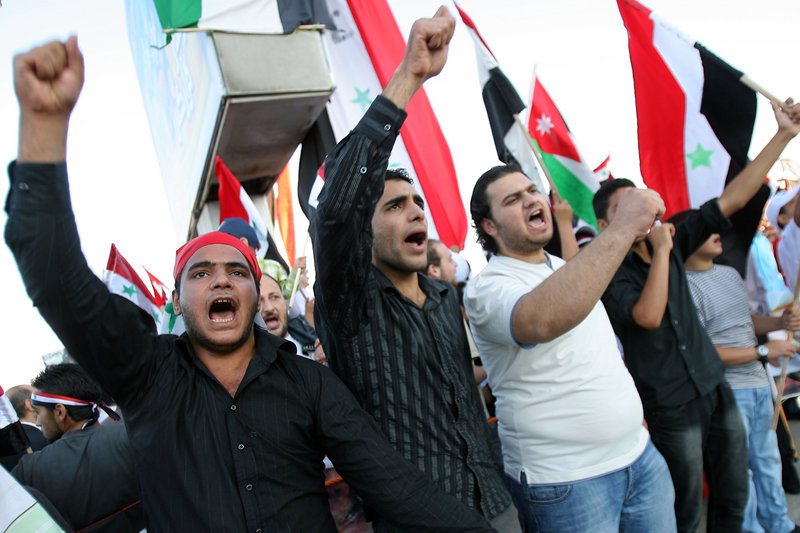BEIRUT – The images grow no less shocking with time — a gaping wound on a tiny skull, the hair matted with blood; a gunshot that pierced the skin of a small torso and went straight toward the kidney; the broken neck and severed penis of a 13-year-old boy, his mangled body contorted on a plastic sheet.
The images of children killed in a government crackdown on protests are circulating widely among Syrians on YouTube and Al-Jazeera, Facebook and opposition websites. And they are stoking even more fury against a regime the opposition says has lost all legitimacy.
Syria’s government tried to blunt the anger with promises Wednesday to investigate the killing of 13-year-old Hamza al-Khatib, whose tortured and mutilated body turned him into a symbol of the Syrian uprising.
But protesters deride that and other government concessions, including an amnesty that freed political prisoners on Wednesday and a committee to prepare for national dialogue, as nothing more than a ploy to buy time for President Basher Assad.
They say at least 25 children are among more than 1,000 dead, with government crackdowns increasing the toll almost daily.
The deaths of two girls — a 12-year-old killed Saturday when her school bus came under fire, and an 11-year-old shot to death Tuesday while her town was being shelled — appeared certain to inflame tensions. Already, a Syrian opposition page refers to the older girl as “the flower of Syria’s martyrs.”
Military operations in southern and central Syria killed at least 33 people Tuesday and Wednesday, even as the government released hundreds of political prisoners. The government claims the revolt is the work of Islamic extremists and armed gangs.
Rami Abdul-Rahman, director of the Syrian Observatory for Human Rights, told The Associated Press that more than 500 prisoners were freed, including some who took part in the latest demonstrations marking the most serious challenge to the Assad family’s 40-year rule. Activists say 10,000 have been rounded up since the protests began in mid-March.
Syrian state television on Tuesday said the amnesty covered “all members of political movements,” including the outlawed Muslim Brotherhood, which led an armed uprising against Assad’s father in 1982. Membership in the party is punishable by death.
The U.S. said the amnesty would not be enough.
“We need to see all political prisoners released, and we need to see an end to the violence that Syrian forces have been continually carrying out against civilian populations,” State Department spokesman Mark Toner said in Washington.
Send questions/comments to the editors.



Success. Please wait for the page to reload. If the page does not reload within 5 seconds, please refresh the page.
Enter your email and password to access comments.
Hi, to comment on stories you must . This profile is in addition to your subscription and website login.
Already have a commenting profile? .
Invalid username/password.
Please check your email to confirm and complete your registration.
Only subscribers are eligible to post comments. Please subscribe or login first for digital access. Here’s why.
Use the form below to reset your password. When you've submitted your account email, we will send an email with a reset code.